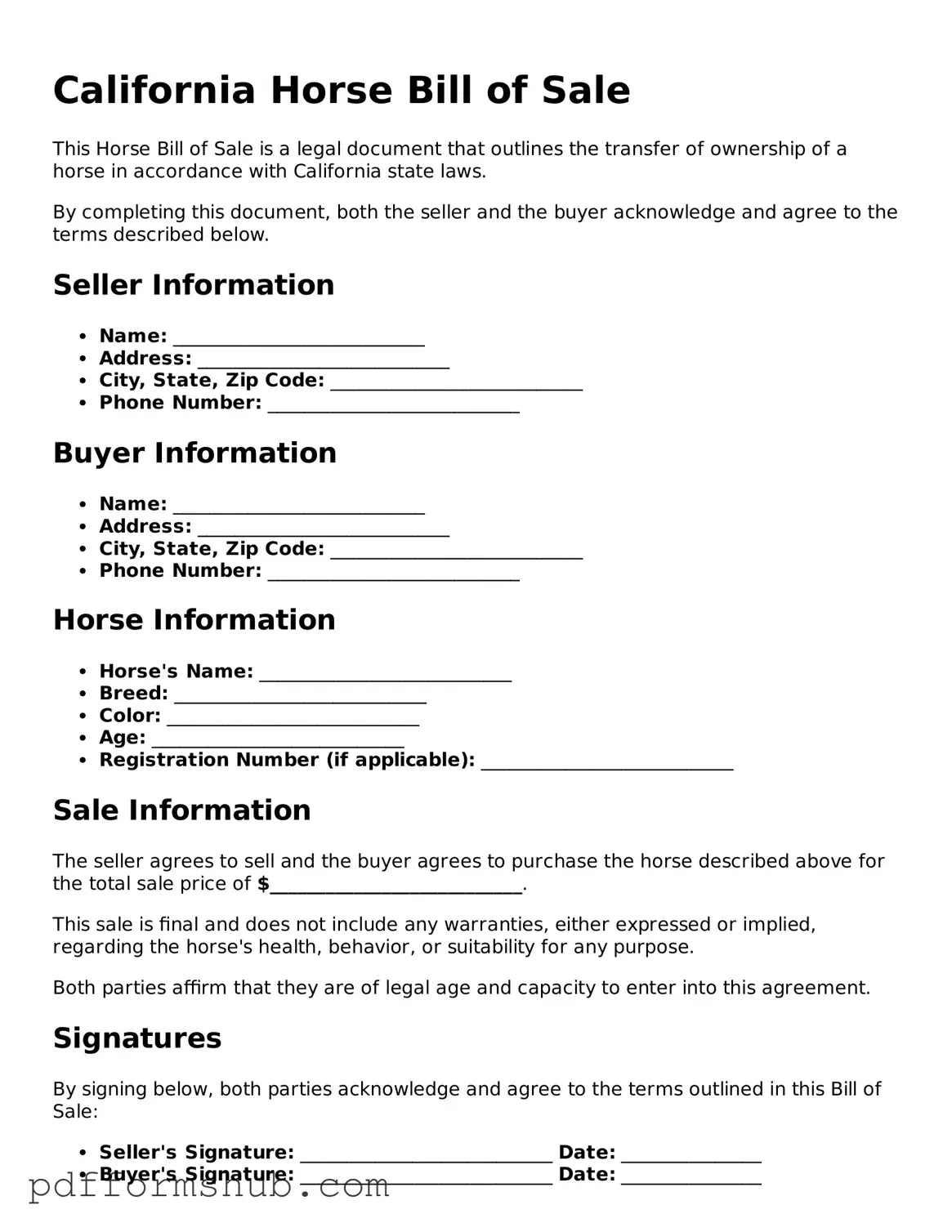Attorney-Verified Horse Bill of Sale Form for California State
The California Horse Bill of Sale form is a legal document that serves as proof of the sale and transfer of ownership of a horse in the state of California. This form outlines important details such as the buyer's and seller's information, the horse's description, and the sale price. Completing this form ensures a clear understanding between both parties involved in the transaction.
To fill out the California Horse Bill of Sale form, click the button below.
Customize Form

Attorney-Verified Horse Bill of Sale Form for California State
Customize Form

Customize Form
or
Free PDF Form
Short deadline? Complete this form now
Complete Horse Bill of Sale online without printing hassles.